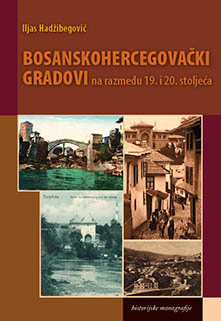
We kindly inform you that, as long as the subject affiliation of our 300.000+ articles is in progress, you might get unsufficient or no results on your third level or second level search. In this case, please broaden your search criteria.

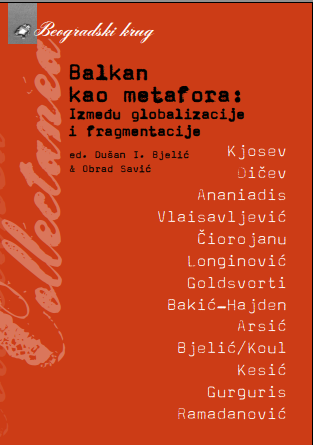
Najpoznatija metafora za Balkan jeste metafora mosta. Ovo poluostrvo predstavlja se pomoću te metafore kao most između Zapada, odnosno, Evrope, i Orijenta. Međutim, u meri u kojoj su metafore, zahvaljujući svojoj protejskoj prirodi u stanju da se poigravaju sa različitim značenjima, odnosno, imaju sposobnost da istovremeno ukazuju na razna značenja, ovaj most se može shvatiti i kao situacija preklapanja više balkanskih kultura.
More...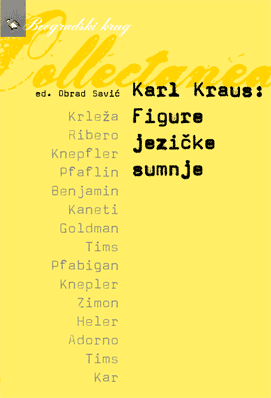
Početak novembra 1914., koje sam znao dok je bilo još ovako malo; koje će opet postati malo ako mu je za to ostalo vremena; i koje, pošto na polju organskog rasta nije moguć takav preobražaj, bolje da nazovemo glomaznim i zaista teškim vremenom; u ovo vreme, u kojem se događa upravo ono što se nije moglo zamisliti, i u kojem mora da se dogodi ono što se više ne može zamisliti, jer da je moglo, onda se ne bi ni dogodilo; u ovo ozbiljno vreme, koje je umrlo od smeha na pomisao da može postati ozbiljno; iznenađeno svojom tragikom ono poseže za razbibrigom, i uhvativši sàmo sebe na delu, ono traži reči; u ovo bučno vreme koje tutnji od strašne simfonije dela koja proizvode izveštaje i izveštaja koji su krivi za dela: u njemu nemojte očekivati nijednu jedinu moju vlastitu reč.
More...
Nerazdvojni je pratilac mladalačke nezajažljivosti, ali i naglosti, to da jedan fenomen, jedna avantura, jedan model protjeruje drugi. Zagrijavamo se, predajemo, podređujemo i vezujemo sa isključivom strašću. Čim nas jedan idol razočara, rušimo ga sa pijedestala i uništavamo bez ustezanja: nije u pitanju pravednost – on je jednostavno imao previše značaja. Onda na ruševine starog postavimo novog idola. Nije bitno što se on tu nelagodno osjeća. Prema idolima se ponašamo prevrtljivo, tiranski, ne tiče nas se kako se oni osjećaju, oni su tu da bi bili uzdignuti, a potom zbačeni; smjenjuju se u zapanjujućem broju, međusobno se toliko razlikuju, toliko su protivuriječni da bi se svako ko pokuša da ih sve zajedno posmatra uplašio.
More...
Odmah treba reći: čini nam se da je, uz Đerđa Lukača, Karl Kraus jedna od najznačajnijih figura intelektualnog života njemačkog jezičkog izraza u posljednjih šezdeset godina. Bez sumnje, izgledaće pomalo subjektivno stavljanje u prvi plan dva imena gotovo nepoznata francuskim čitaocima, naviknutim na nabrajanje nekoliko uvijek istih, posvećenih imena: Tomas Man u književnosti, Rilke, Stefan George u poeziji, Huserl i Hajdeger u filozofiji.
More...
Onaj ko danas hoće da razmišlja o ovoj temi, mora, reći ću, oslanjajući se na Brechta, »da prevlada bar pet teškoća«. Sud koji je Kraus izricao sâm o sebi, mora se uzimati ne uvek doslovno, ali uvek vrlo ozbiljno; mora se pro- misliti da je Kraus bio satiričar, a ne političar, mada je često politički delovao; mora se imati u vidu da je uvek pravio razliku između stvari i njenih zastupnika; mora se znati da je on doživljavao duboke promene svojih pogleda često iz dugogodišnje tegobne unutrašnje sumnje i borbe; na kraju, peto, treba prevladati celu gomilu teškoća koje čine predrasude i pogrešne ocene; Karl Kraus nije nikada identifikovao »socijaldemokratiju« sa »socijalizmom«, za njega je »socijalizam« značio »zamenu građanskog sveta socijalističkim«, a »komunizam« nije psovka (koju je građanski svet u međuvremenu pokušao da načini od njega), nego je alternativni koncept za dostizanje upravo onog cilja koji socijaldemokratija u Krausovo vreme nije samo promašivala, nego je i prestala da mu teži.
More...
Upitaše Konfučija jednom, šta bi kao prvo uradio da se nalazi na čelu jedne zemlje. »Poboljšao bih upotrebu jezika«, odgovori mudrac. Njegovi slušaoci se nađoše u čudu. »Pa to nema nikakve veze sa našim pitanjem«, rekoše, »čemu bolja upotreba jezika?« Mudrac odgovori: »Ako jezik nije dobar, onda ono što se kaže nije ono što se misli, ne nastaju dela; ne nastaju li dela, nema morala ni umetnosti, nema ni pravde; nema li pravde, narod ne zna kuda će i šta će. Neka se, dakle, ne dopušta samovolja u rečima. U tome je suština«.
More...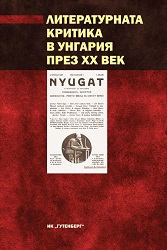
This book gives an opportunity for a different view of Hungarian essayism. Literature is always framed within a certain input language and the critics, except the translators, are the ones that are making certain title known in an output language. The essays in this book give a chance for everyone that is interested in Hungarian literature to receive new information and topics that sometimes show similarities in Bulgarian literature.
More...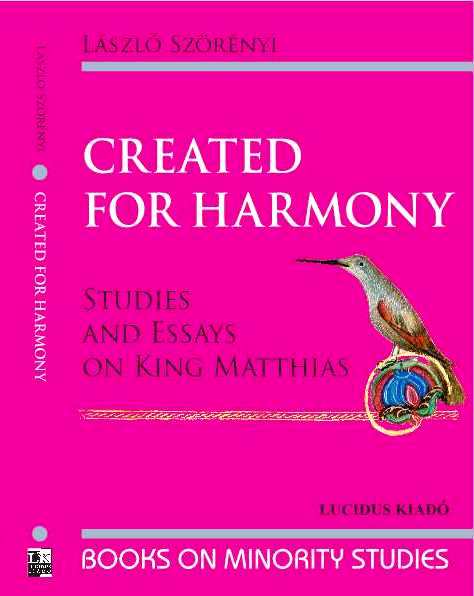
This collection of essays constitutes a mosaic. Romans were fond of mosaics, for instance, at the entrance of their houses. The numerous little tiles could make up a skeleton, for instance, but that did not imply that one should ”flee this place for this is the dwelling place of Death”, but rather that ”Death, you do not belong here”. Let us attempt to read this book in this spirit.
More...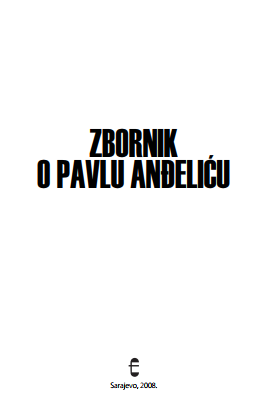
Imam posebnu čast i obvezu prisustvovati ovom Međunarodnom znanstvenom skupu u Sarajevu u plemenitoj misiji posvećenoj uspomeni na lik i djelo našeg uglednog arheologa i povjesničara dr. Pave Anđelića. Pozdravljam predstavnike organizatora ovoga skupa Franjevačke teologije u Sarajevu, znanstvenike iz inozemstva, predstavnike kulturnih i drugih institucija, kolege i suradnike dr. Anđelića kao i njegovu rodbinu. Ovom prigodom podsjećamo se na njegovo značajno životno djelo i doprinos znanstvenim arheološkim i povijesnim istraživanjima razdoblja srednjeg vijeka u Bosni i Hercegovini i odajemo mu dužno priznanje kao čovjeku, suradniku i prijatelju. Kao kroničar kulturnih zbivanja ove vrste s područja Hercegovine odakle dolazim, dužan sam Vas upoznati da smo prije četiri godine (2002.) njegove kolege, suradnici, prijatelji i kulturne institucije održali Okrugli stol u Mostaru na kojem su evocirane uspomene na životno djelo dr. Pave Anđelića.
More...
O dr. Pavi Anđeliću i njegovom djelu napisano je mnogo. Njegov opus kao arheologa i historičara je veoma kompleksan. U ovom radu su obrađene osnovne značajke jednog od segmenata njegovog kompleksnog znanstvenog djelovanja i doprinosa proučavanju srednjovjekovnog perioda na tlu Bosne i Hercegovine, na polju arheologije.
More...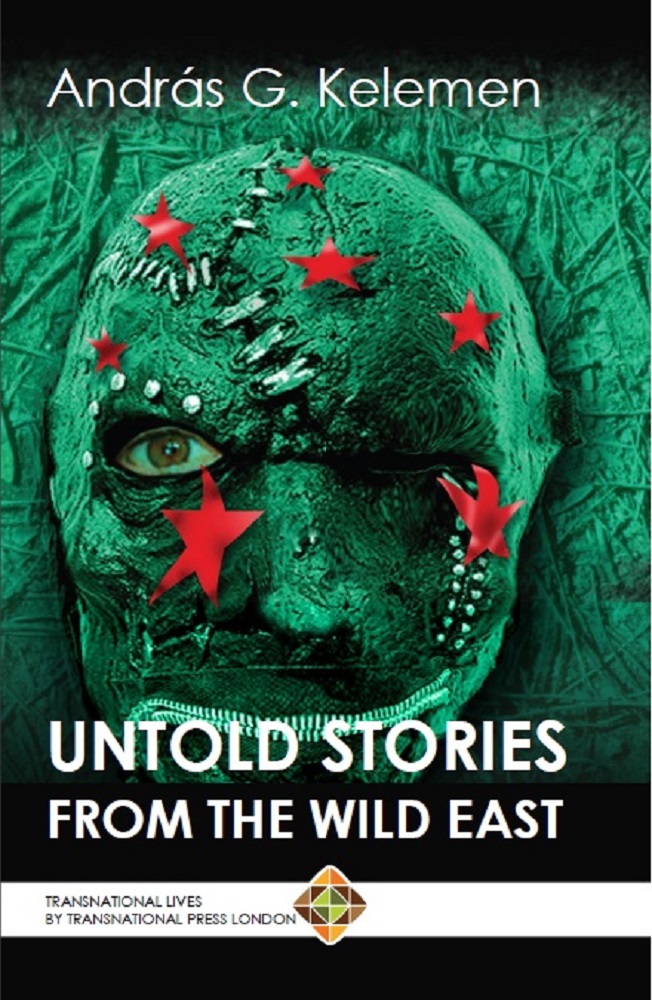
András G. Kelemen shares his stories from a long transnational professional career. Kelemen worked in various roles in transnational organisations. He has four children and three grandchildren. When it comes to daily politics, while being a diehart patriot and simultaneously a cosmopolitan, Kelemen says “I am a diehard democrat. However, to confuse anyone” he admits during his professional years as a top manager he had to skip some democratic processes as the pressures of time specific critical decisions dictated. Kelemen, as clearly seen from his satirical story telling in this book, says he would listen eagerly to the opinions of his colleagues if there was enough time, “but this happened rather scarcely”.
More...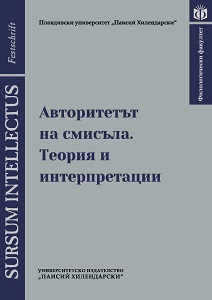
The publication of the present Festschrift volume was suggested and initiated by the Department of Bulgarian Literature and Theory of Literature, School of Letters at Plovdiv University Paisii Hilendarski. It is dedicated to the seventieth anniversary of assoc. prof. Atanas Buchkov, long-term head of the department. This volume includes papers of literary scholars in various areas from Bulgarian and foreign academic centres – Plovdiv University Paisii Hilendarski, Sofia University St. Kliment Ohridski, The Institute of Literature at the Bulgarian Academy of Sciences, St Cyril and St Methodius University of Veliko Tarnovo, The South-West University Neofit Rilski in Blagoevgrad, Queen Mary University London, Ruprecht-Karls-Universität Heidelberg, Tver State University Russia. The papers are published in honour of the literary scholar and teacher who merits a place amidst the most prominent representatives of Plovdiv philological community, a person of incontestable contributive influence and renoun in nurturing and solidifying the philological and humanitarian education at Plovdiv University. This Festschrift unites scientific researches devoted to issues representative of prof. Atanas Buchkov’s scholarly interests – the theoretical heritage of M. M. Bakhtin; the dialogic principle of/in literature and culture; author and his aesthetic and social roles; methodology of literary theory and of the humanities; the possibilities, premises, and routes of interpretation.
More...
The author discusses well-known theories on sex and sexuality and analyses the works in which the narrative focuses on the issues of biology, body, sex, and eroticism. Moreover, the ongoing discourse in culture regarding this subject is presented against a broad backdrop of civilization changes and the thresholds of linguistic resistance, established by law, customs, or religion, which the language of literature overcame, more and more freely describing the issues of eroticism.
More...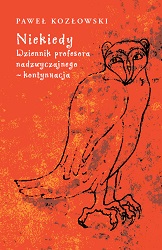
The book, an example of breaking literary conventions, comprises the texts concerning different, often absurd, aspects of reality. It is a critical analysis of academic work, which compels self-reflection and warns against perceiving the world in a stereotypical way and a wordplay, which oversteps the boundaries between the language and imagination.
More...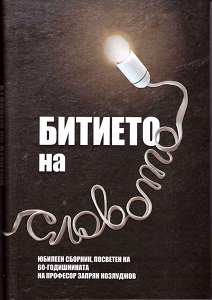
The publication of the present Festschrift volume was suggested and initiated by the Department of Bulgarian Literature and Theory of Literature, School of Letters at Plovdiv University Paisii Hilendarski. It is dedicated to the sixtieth anniversary of prof. Zapryan Kozludzhov, longtime Rector of Paisii Hilendarski University of Plovdiv. This volume includes papers of literary scholars in various areas from Bulgarian and foreign academic centres – Plovdiv University Paisii Hilendarski, Queen Mary University of London, Ruprecht-Karls-Universität Heidelberg, Sofia University St. Kliment Ohridski, The Institute of Literature at the Bulgarian Academy of Sciences, St Cyril and St Methodius University of Veliko Tarnovo, The South-West University Neofit Rilski in Blagoevgrad, Konstantin Preslavsky University of Shumen. The papers are published in honour of the literary scholar and teacher who merits a place amidst the most prominent representatives of Plovdiv philological community, a person of incontestable contributive influence and renoun in nurturing and solidifying the philological and humanitarian education at Plovdiv University.
More...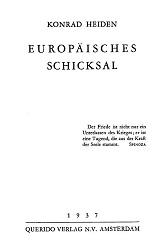
Published in 1937 by Querido-Verlag (Amsterdam) the author offers an essay about the situation of Modern Civilization facing the results of sociographic, technical, intellectual, cultural and political development since the industrial revolution. // Konrad Heiden (born August 7, 1901 in Munich, † June 18, 1966 in New York City) was a German-American journalist and political writer who wrote Hitler's first substantial biography in 1936. // The social democratic journalist has been writing about the political scene in Munich since the early 1920s and thus became one of the earliest observers and a staunch opponent of the Nazi movement and Adolf Hitler. After Hitler came to power, Heiden fled to the USA via several stations and obtained American citizenship in the 1950s. Heiden dealt primarily with the ideology and character of National Socialism. // After his death, Heiden and his writings were quickly forgotten. Since 2007, however, his works on Hitler and National Socialism have been reprinted or re-edited in German for the first time.
More...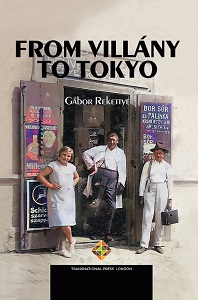
“I was born at the end of World War II, and so I was young in the ’60s. This means that I belong to the so-called (at least in Hungary) ‘great generation’. Young people of this generation, especially in America and Western Europe, rebelled against the existing system, showing their dissatisfaction by protests, new types of music and by outrageous clothes and behaviour. We – here and in the other socialist countries – experienced this, only because of the limitations of the repressive system, in a much gentler way. I have never been a rebel myself, and yet what tied me to this great generation was my desire to know the world much better, to be more informed than the average, to be a real cosmopolitan. That is why I studied languages and travelled much more than most.”
More...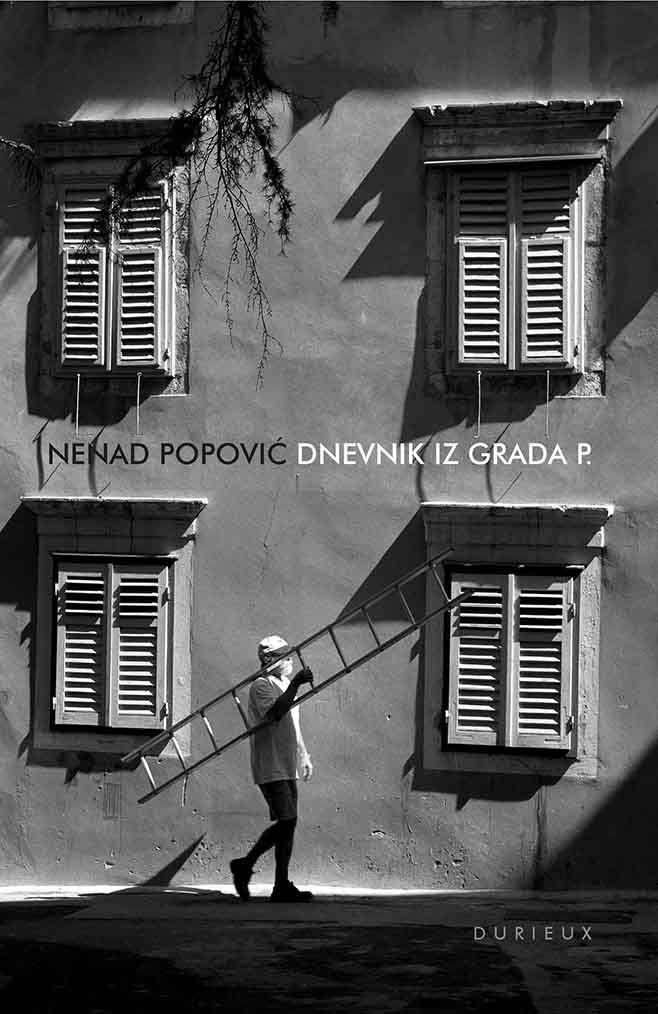
At the first sight, this book is a compilation of notes on private, political and social matters. However, it is far more than just that. The essays in the Diary form the City of P. tackle the signals of state poverty or, rather, state power that is barely noticed in Croatia; the books read only by a few in Croatia, the nearly unreal facts that are strange to almost nobody in Croatia. What does a microcosmos of a garbage bottles gatherer really look like? Where do the new highways lead to as they descend to the borders of Schengen Area, towards the unfortunate regions of the Balkans? How does a simple building demask the whole history of a former Austro-Hungarian war port? Finally, how did the Kajkavian dialect end up in the gutter, as a social caricature, during the language wars of the last 150 years? This diary, whose geographical determinant (a city by the sea), and a historical moment (the year of Croatia’s entrance into the EU) are a necessary context, is in fact unconventional anatomy of the reality that flows, thorough and encompassing at the same time. Publisher, translator, and writer Nenad Popović was born in Zagreb in 1950. He attended colleges in Zagreb and Bonn, and Freiburg with the scholarship Deutscher Akademischer Austauschdienst. He graduated in German Language and Literature and South Slavic Languages and Literature from the Zagreb Faculty of Humanities and Social Sciences. In 1980. he became an editor, and afterwards the head editor of the publishing house Graphical Institute of Croatia. In 1990. he co-founded the publishing house Durieux, one of the first independent private publishing houses in Croatia, where he worked as the head editor until 2013. In 1999. he participated in founding of the literary Group 99. In 2002 he became one of founders of the Croatian Writers’ Society, becoming its vice-president afterwards. Since 1978, he has occasionally written for newspapers, magazines and radio, and since 1985 for the media of German speaking countries (Manuskripte, Literatur und Kritik, Kulturaustausch, Frankfurter Rundschau, Die Zeit, Weltwoche, et al.). For theatre he translated such authors as Sternheim, Bruckner, Bernhard, Fassbinder among others. He also translated books by Erwin Piscator, Kazimir Malevič, Boris Kelemen, Benn Meyer-Wehlack, Tilla Durieux and Rainer Werner Fassbinder. During Bosnian wars, he translated articles by Bosnian writers (Karahasan, Lovrenović, Filipović, Jergović) for German newspapers and magazines. He published books A World in Shadow (2008), A Treatise on Population (2014), Diary from the City of P. (2017), and Living with Them (2021). For his work he received many awards and accolades: Premio '92 per il lavoro letterario from the Italian Cultural Institute in Zagreb (1992), The Leipzig Book Award for European Understanding (1999), and, with Freimut Duve, Bruno Kreisky Award (1999). He was also awarded the Hermann Kesten Medal by the German PEN Centre in 2000. The same year he became an honorary citizen of Sarajevo. He is a member of the following organisations: Croatian PEN Centre, Cap Anamur - German Emergency Doctors, Cologne; Journalisten helfen Journalisten, München; International Forum Bosnia, Sarajevo; Association of Literary Translators of Croatia. He lives in Pula.
More...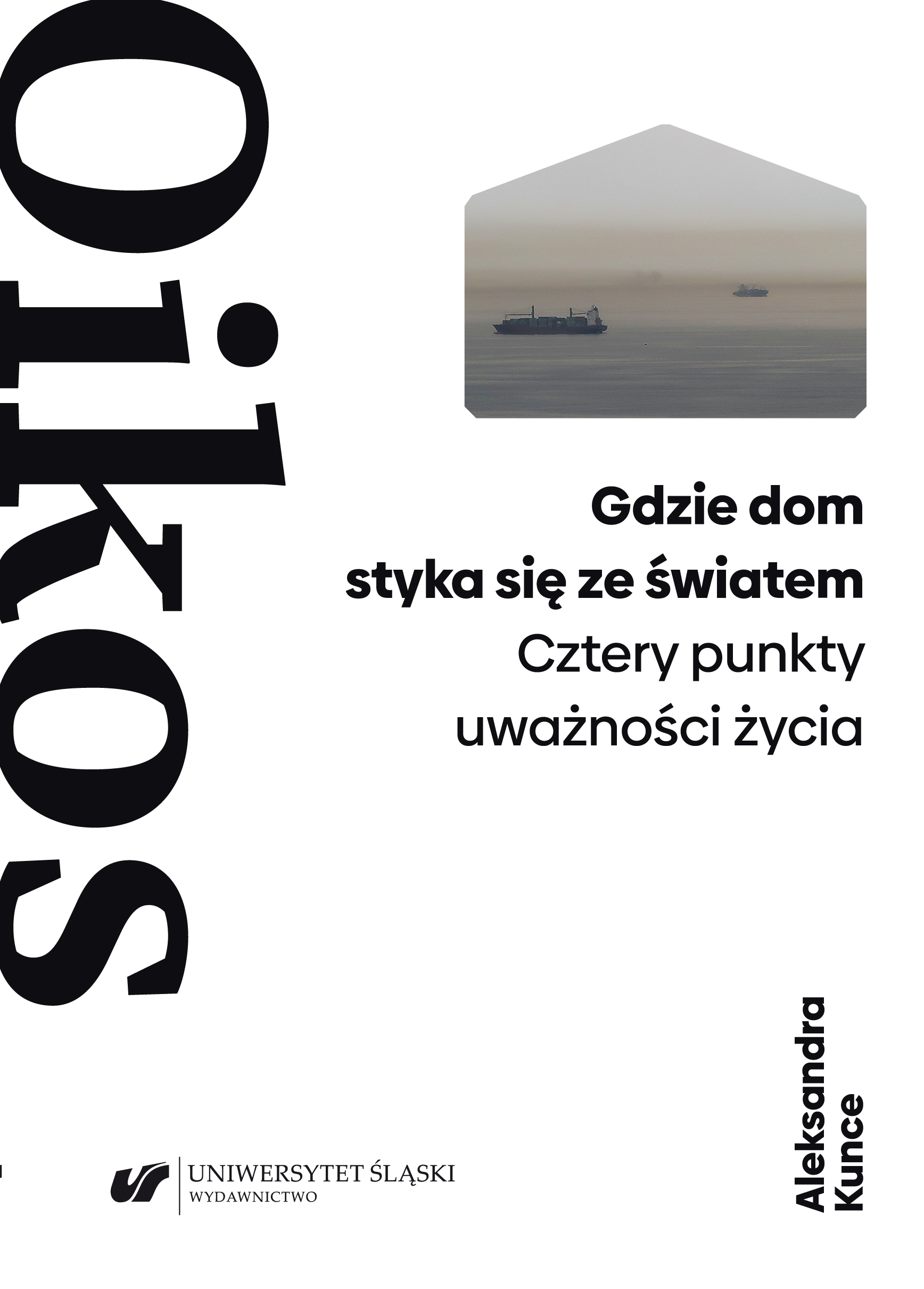
A small thing: four oikological essays, preceded by an introductory word, on our entanglement in the “home-world.” If we were to take the title as the question, “Where does the home meet the world?”, the answer would be: “In the points that require our attentiveness of life.” Attentiveness requires discipline and precision, and it is not only about precision in actions and observations, but about our being at home and in the world, in the changing rhythms of being rooted and wandering. Being mindful guides us towards a place, and concern extends over time to finally lead us home. Home is a peculiar time(lessness); it is a dynamically understood and open place that allows us to direct our desire to what is distant, inconceivable, and unimaginable. When we say ‘home,’ we do not mean a familiar and closed stronghold but a home rooted in the idea of the cosmos. It corresponds also to the idea of Heimat. The four points of contact between home and the world are found through (1) the humanities, (2) man, (3) friendship with the place, and (4) the university. The four oikological essays look into the entanglements, overlaps, but also the truest lack of the indeterminate at the boundary of home, around the threshold that symbolically not only testifies to the boundary in rituals, but delineates the space of attentiveness. At these points where home meets the world, our entanglement in the "home-world" is brought out.
More...